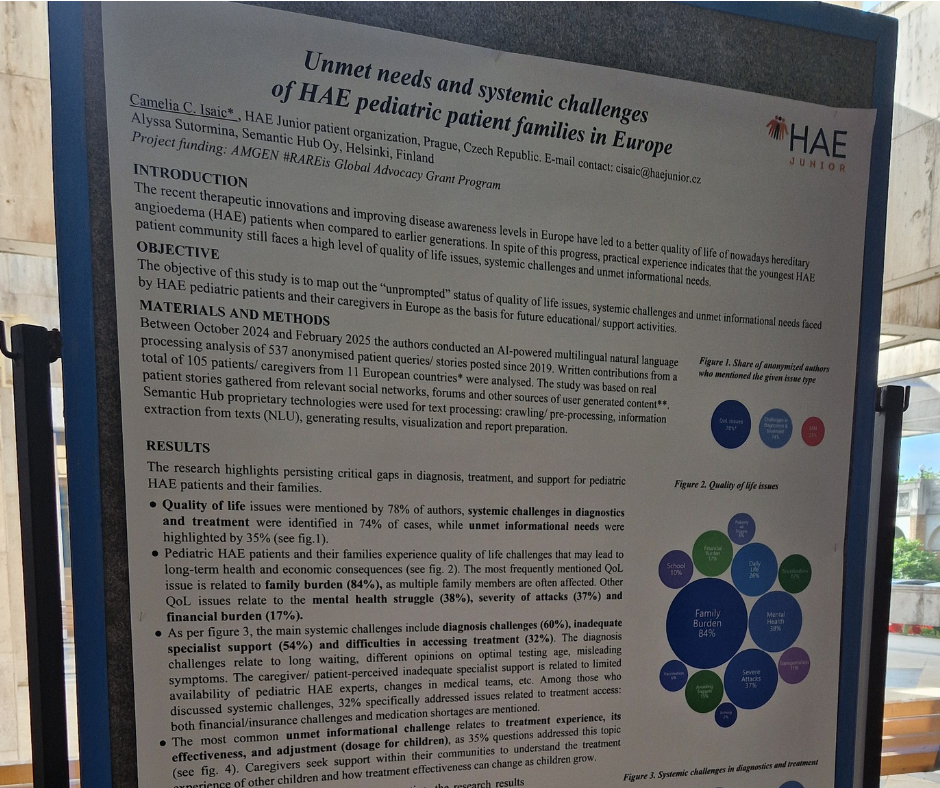
HAE Junior was proud to participate in the 14th C1-inhibitor Deficiency & Angioedema Workshop, held in Budapest from 29th May to 1 June 2025, with a scientific poster presentation titled: "Unmet Needs and Systemic Challenges of HAE Pediatric Patient Families in Europe." The poster shared findings from a multilingual AI-powered analysis of real patient and caregiver stories published online since 2019. The AI-enabled analysis was carried out in partnership with Semantic Hub, an innovative medtech company specializing in natural language processing for patient-centered insights.
Objectives - the aim of the study was to identify and map unprompted concerns relating to quality of life, systemic challenges, and unmet informational needs among pediatric HAE patients and their families across Europe. These insights could serve the future design of educational and patient- support activities tailored by patient organizations.
Methods - between October 2024 and February 2025, a total of 537 anonymized online patient contributions were analyzed using natural language processing (NLP) tools developed by Semantic Hub. The content came from 105 individuals across 11 European countries, including Germany, Poland, the UK, Czech Republic, Greece, Croatia, Belgium, Cyprus, France, Serbia, and North Macedonia. All data were fully anonymized in line with GDPR. The analysis focused on inputs from patient-generated content online platforms.
Key Findings
The data also revealed regional disparities:
Conclusion
Despite therapeutic progress, families with pediatric HAE patients in Europe continue to face significant emotional, medical, and financial burdens. The findings underscore the need for:
These insights can assist patient organizations in better adapting support services and educational resources to the real-life needs of European families with children and adolescents living with HAE.
Funding Acknowledgment: this project was made possible thanks to the support of the AMGEN #RAREis Global Advocacy Grant Program.
A copy of the presented poster is available here.